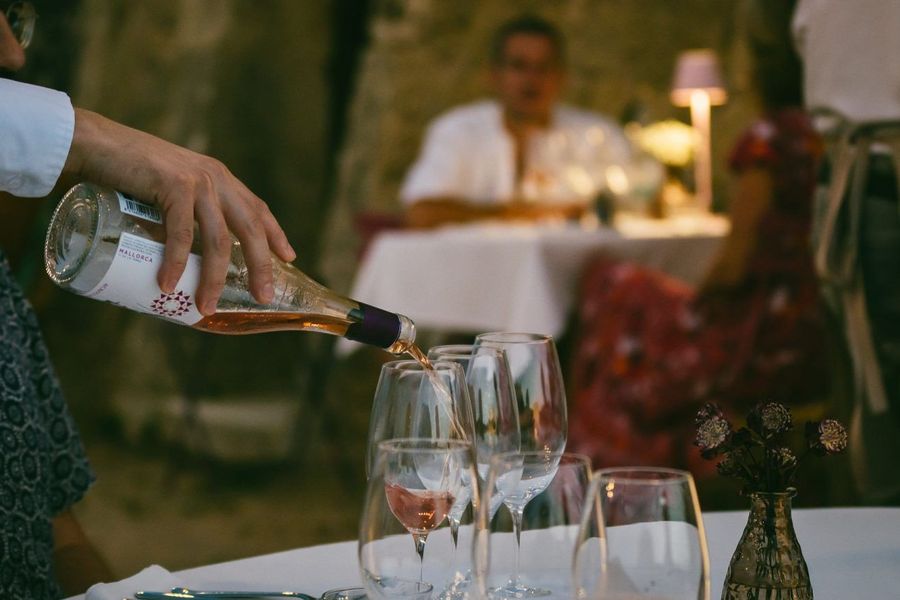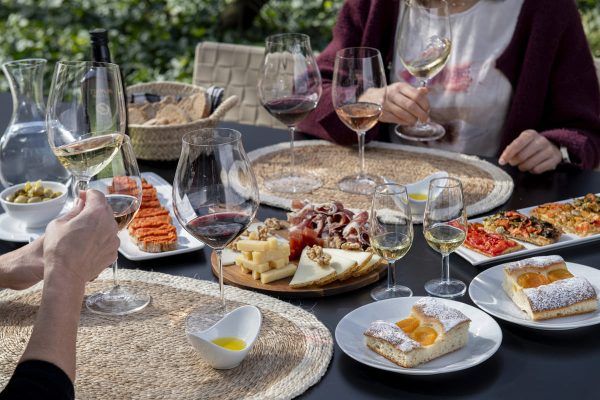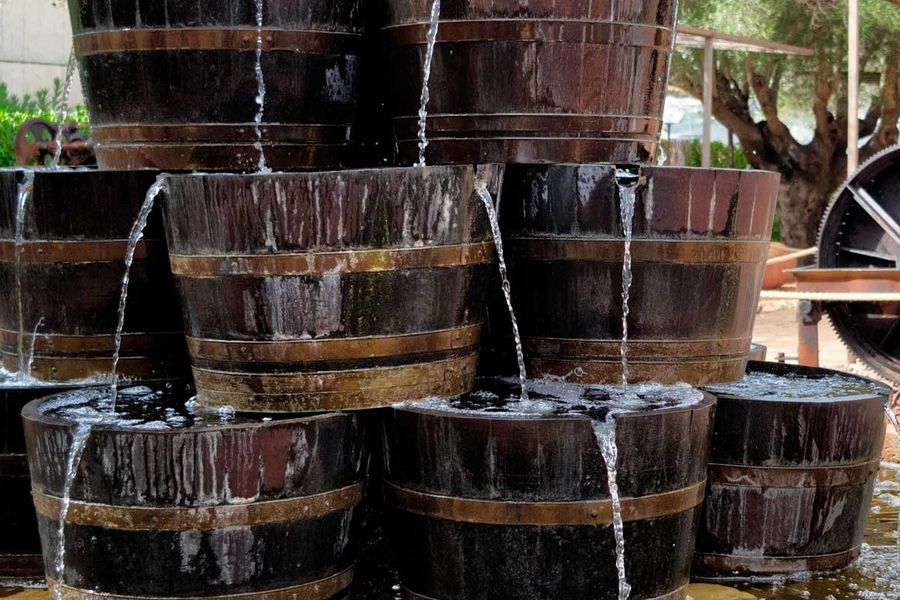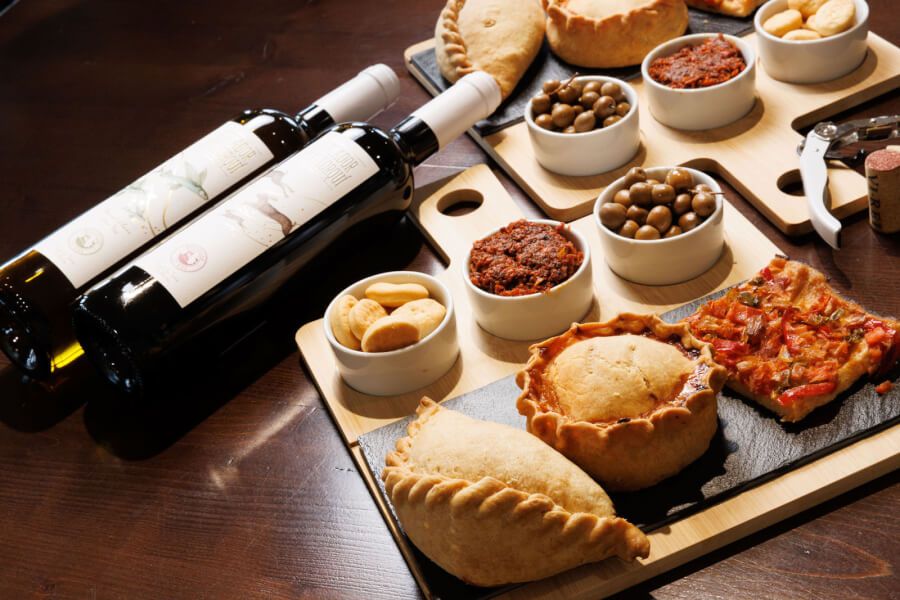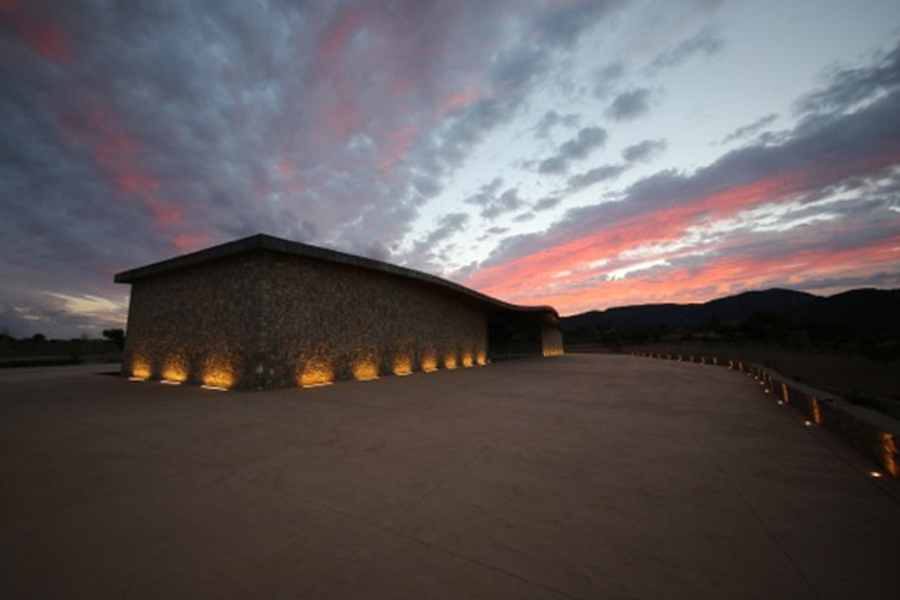Match the wines of the Balearic Denomination of Origin Binissalem with its finest gastronomy, like Arrot Brut.
- In Baleares we can find 5 wineries to visit.
- 5 towns here have wineries.
Wine Tourism in the Balearic Islands
The Balearic Islands, known for their stunning beaches and vibrant culture, also offer an excellent wine tourism experience. The region is home to a variety of wines with distinct characteristics, thanks to the unique climate and soil of the islands. Wine enthusiasts visiting the Balearics can explore several wine-producing areas, each offering its own unique flavors and experiences.
Wines and Denominations of Origin
The Balearic Islands have two main Denominations of Origin (DO) for their wines:
DO Binissalem (Mallorca): This is the oldest DO in the Balearic Islands, known for its red wines, which are primarily made from the Manto Negro grape, often blended with Callet and other varieties. The white wines from this region are typically made from Prensal Blanc (Moll) and Macabeo.
DO Pla i Llevant (Mallorca): This DO covers a larger area and produces a wide variety of wines. Red wines here often include Callet, Manto Negro, and Fogoneu grapes, while white wines might be made from Prensal Blanc, Chardonnay, and Moscatel.
Additionally, there are other wine-producing areas in Mallorca, Ibiza, and Menorca, where you'll find interesting wines labeled as Vino de la Tierra (VT).
Grape Varieties
Manto Negro: A native red grape variety, known for producing fruity and aromatic wines with a soft, well-rounded character.
Callet: Another indigenous red grape, often used in blends to create complex wines with earthy and herbal notes.
Prensal Blanc: The most common white grape in Mallorca, producing light and fresh wines with citrus and floral notes.
Fogoneu: A red grape that adds color and structure to blends, known for its delicate flavors.
Pairing Balearic Wines with Local Cuisine
The Balearic cuisine, rich in flavors and tradition, offers an excellent opportunity to pair local dishes with wines from the islands:
Sobrasada: This iconic Balearic sausage, with its rich and spicy flavor, pairs beautifully with a red wine made from Manto Negro. The wine's fruity notes complement the spiciness of the sobrasada.
Tumbet: A traditional Mallorcan vegetable dish, similar to ratatouille, pairs well with a Callet-based red wine. The wine's earthy notes enhance the flavors of the vegetables.
Ensaimada: This sweet pastry, often enjoyed as a dessert, can be paired with a Moscatel wine from Pla i Llevant. The wine's sweetness and floral notes are a perfect match for the ensaimada's buttery flavor.
Arroz Brut: A hearty rice dish with meats and vegetables, typically enjoyed in the colder months, pairs well with a full-bodied red wine from DO Binissalem. The robust flavors of the wine complement the richness of the dish.
What to Do After Visiting the Wineries
After indulging in the wine and culinary delights of the Balearic Islands, there’s plenty more to explore. Whether you’re looking to relax with tapas and drinks or dive into nature, the islands have something to offer every visitor.
1. Tapas, Bars, and Terraces:
Palma de Mallorca: The island's capital is a hub for nightlife, with numerous bars and tapas spots. The areas around La Lonja and Santa Catalina are particularly popular, offering a variety of bars and terraces where you can enjoy local wines and small plates of tapas in a lively atmosphere.
Ibiza Town: Known for its vibrant nightlife, Ibiza Town has plenty of chic bars and rooftop terraces, where you can enjoy a glass of local wine while taking in the views of the harbor.
Ciutadella (Menorca): This charming town offers a more laid-back vibe, with quaint bars and terraces where you can savor local wines and tapas in a picturesque setting.
2. Nature Tourism:
Serra de Tramuntana (Mallorca): A UNESCO World Heritage site, this mountain range offers stunning landscapes and excellent hiking opportunities. You can explore traditional villages like Deià and Valldemossa, or hike to hidden coves and mountain peaks.
Parque Natural de Ses Salines (Ibiza): A protected a

 26,00€
26,00€


 25,00€
25,00€


 45,00€
45,00€


 65,00€
65,00€
